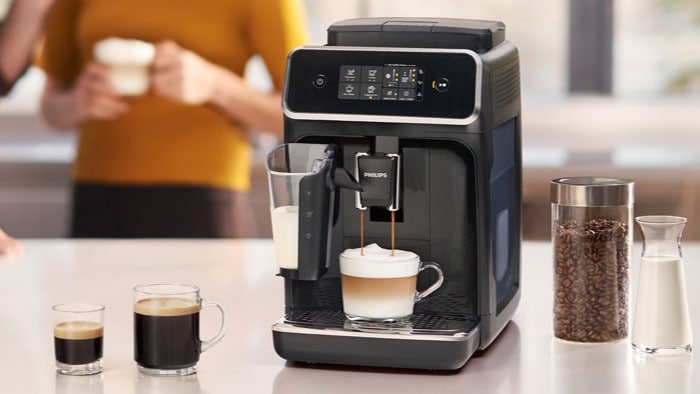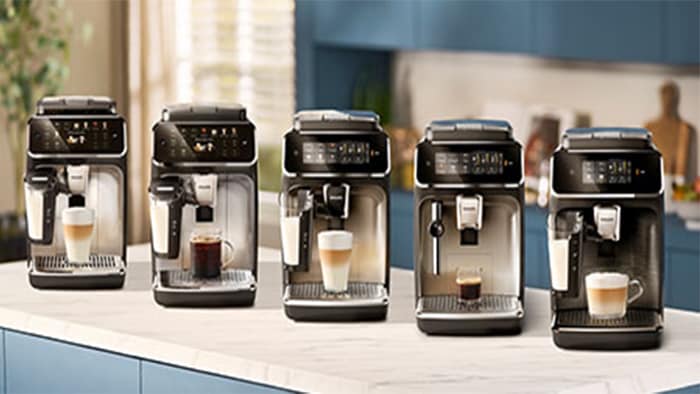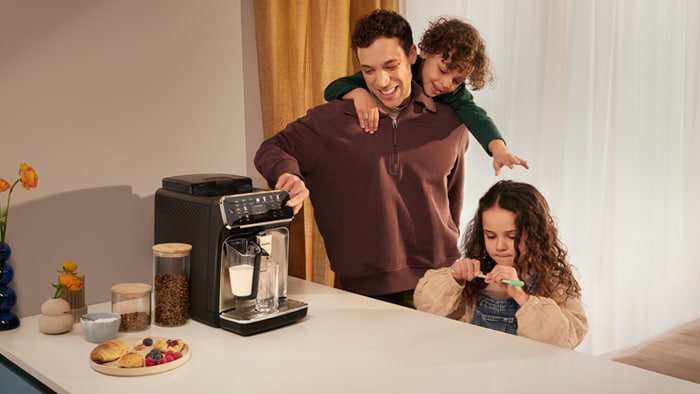Reading time: 5 Min
Bitter coffee? Here’s why
Taking a sip from a cup of bitter coffee first thing in the morning can be a jarring start to the day. That bitterness can be caused by a variety of factors from brewing your coffee too long to using water that’s too hot.
Read on to discover why your coffee tastes bitter and get our top coffee tips on making the perfect brew.
Should Coffee Be Bitter?
Coffee is bitter. The reason coffee tastes bitter is because its main ingredient, caffeine, is also naturally bitter.
The following factors can make your coffee even more bitter or sour:
Why Is My Coffee Bitter? Things to Look Out For
Over extracted coffee
How smooth or bitter we like our coffee is a matter of personal taste.
But here are some signs that your coffee is too bitter to enjoy:
Coffee extraction is how flavours, oils, and compounds from coffee grounds dissolve into water to make your coffee.
When you brew your coffee, the extraction process begins when the hot water comes into contact with your coffee grounds.
If too many of these compounds are allowed to dissolve from your coffee grounds, this is “over-extraction”.
Although pleasant flavours are being released, too many bitter flavours are being released at the same time.
That’s why over-extracted coffee sometimes tastes like medicine, garlic, or chocolate.
Sour vs bitter coffee
On the other hand, if you underextract your coffee, it will taste sour.
That’s because one of the first tastes released in the extraction process is a fruity, acidic flavour that can be quite tart like citrus fruit.
When you under extract coffee, you don’t give the coffee the time to release the range of pleasant flavours you need to balance the initial sourness.

How to Make Coffee Less bitter
Now that you know what could be causing your coffee troubles, it’s time to discover a solution for each of the culprits. Have a look at these tips on how to make coffee taste good: 1. Clean your equipment There are two factors that influence how bitter your coffee is. Choose Arabica beans if you want a smoother cup of coffee. If you like your coffee with a bold taste and like some bitterness in the flavour profile, choose Robusta beans. 2. Choose beans roasted in the right way The longer and hotter the beans are roasted, the more bitter they become. Darker roasts taste more bitter because they have more of these compounds. 3. Clean your coffee machine 4. Coffee bean storage 5. Ensure the correct size of coffee grounds The best espressos rely on rapid extraction under consistently high pressure.
First, the type. The most popular beans are:
Before the coffee you buy reaches the shops, the coffee beans are roasted.
They’re roasted to develop their flavours and aromas. The process transforms the dense, flavourless raw coffee beans picked from the coffee plants into the beans we brew our coffee with.
During roasting, chlorogenic acids in the beans break down into bitter compounds like phenylindanes, quinic acid, and caffeic acids.
When choosing coffee beans, check the roast level:
You can usually find this information on the package or by asking your coffee supplier. Knowing the roast level helps you choose a coffee that suits your taste.
If you don’t clean your coffee machine regularly, the residue from one brew builds up and affects the way your next coffee tastes.
Maintaining clean equipment is also essential to prolong the life and smooth operation of your coffee maker.
Buy an easy-to-clean coffee machine to save time. You could also use a descaling solution even now and again to remove any mineral buildup.
Store your coffee beans in a tightly sealed container that’s placed away from direct sunlight and heat.
Don’t put your coffee beans in the refrigerator or freezer because the moisture can ruin the beans and affect the flavour of your coffee.
For the most effective coffee storage, consider using vacuum-sealed containers or coffee canisters with CO2 valves so that you keep your beans fresher for longer.
Grinding your beans just before you start brewing can also help them keep their flavour.
Make sure that you’re not grinding your beans too finely as this can result in over-extraction.
Be sure that you are using the correct grind level for the specific brewing technique that you’re using.
Consider a machine that comes with durable ceramic grinders that can turn beans into anything from ultra-fine powder to coarse grindings.
This also means that your machine will be able to make more types of coffee.
6. Why pressure is particularly important for espresso
By forcing water at high pressure through your coffee grinds, you extra the best flavours and oils and keep bitterness to a minimum.
The best pressure for an espresso machine is around nine bars.
At this setting, you’ll balance the flavours well and crema (the creamy foam on top of espressos) will form.
7. Getting the coffee-to-water ratio right
Coffee's “Golden Ratio” is 17g of coffee to 34g of water for espresso and 15g of coffee to 240g of water for coffee.*
This is a general standard and a great target to aim for when you’re learning how to make your coffee taste better.
Using a digital scale can help you make sure you’re getting the ratios just right.
8. Check the brewing time and water temperature
The water temperature should be 90-96°C when brewing coffee. Anything colder may result in sour, under-extracted coffee.
Brewing times vary depending on the method you use. To make coffee less acidic with a cafetiere, for example, the brewing time is about two to four minutes.
If you’re not going to drink it straight after brewing, pour it into a jug.
Espresso, on the other hand, brews for only 20 to 30 seconds. And a regular coffee machine takes about five minutes.
Coffee Machine Pressure and the Perfect Brew
Coffee machine pressure is very important for taste. If the pressure is too low, the coffee will be weak and sour. If the pressure is too high, the coffee will taste bitter and harsh.
The right pressure also makes the coffee feel thicker and creamier in your mouth. Keeping the pressure just right equals coffee just your way.
Now that you know what to do if your coffee tastes bitter, you can enjoy delicious coffee and espresso drinks with every cup.
What you need
-
- Choose from 12 beverages
- LatteGo milk solution for silky smooth drinks
- Aesthetic black colour
- TFT display for great control
- Perfect drink temperature
-
- The EP4346/70 makes 8 beverages
- Smart LatteGo milk solution
- Sleek black design
- 5 aroma strength settings
- Philips LatteGo 4300 with TFT display
-
Series 3200
Bean to Cup coffee machine
EP3246/70
- Perfect drinks with the Philips LatteGo EP3246/70
- LatteGo technology for the perfect foam
- Silver colour to blend in with kitchen appliances
- Easy touch display
- 12 grinder settings and 3 aroma strength settings
You may like
Discover more
Subscribe to our newsletter

A 15% off voucher for the Philips online shop

Exclusive offers and sales events








